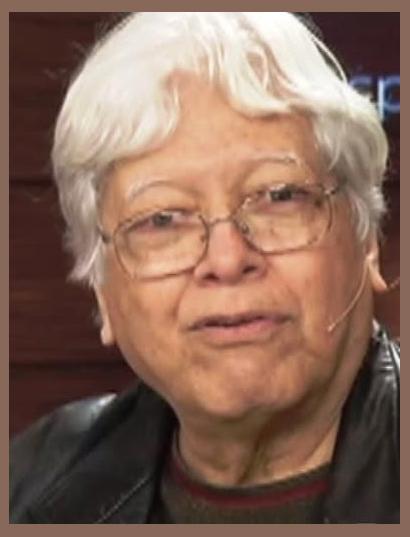 Hermínio Bello de Carvalho
Hermínio Bello de Carvalho
Hermínio Bello de Carvalho: A Musical Force from Brazil's Heartland
In the vast and enigmatic tapestry of Brazilian music, Hermínio Bello de Carvalho stands as a towering figure, his iconic song "Estrada do Sertão" forever etched into the cultural consciousness of the nation. Yet, beyond the enduring legacy of this timeless masterpiece, Carvalho's artistic journey was marked by both triumphs and tribulations.
Early Life and Influences
Born in 1938 in the desolate sertão (backlands) of Pernambuco, Carvalho's childhood was steeped in the rhythms and melodies of his homeland. The lullabies of his mother and the songs of local troubadours ignited a passion for music within him that would never wane.
Musical Beginnings
In his youth, Carvalho moved to Rio de Janeiro, the vibrant cultural hub of Brazil. There, he honed his craft as a guitarist and vocalist, immersing himself in the diverse musical traditions of his country. Inspired by the likes of Luiz Gonzaga and Jackson do Pandeiro, he developed a unique style that combined elements of samba, baião, and folk music.
Breakthrough: "Estrada do Sertão"
In 1967, Carvalho released his debut album, "Canta o Brasil," which featured his seminal song "Estrada do Sertão." The track, a poignant ballad about the harsh reality of life in the sertão, became an instant sensation. Its haunting melody and evocative lyrics captured the hearts of Brazilians across the country, establishing Carvalho as a major force in popular music.
Challenges and Controversies
Carvalho's success did not come without its challenges. During the military dictatorship that gripped Brazil from the 1960s to the 1980s, his music was often censored due to its perceived subversive nature. Despite these obstacles, he remained steadfast in his commitment to social commentary, using his songs to raise awareness about the plight of the marginalized.
Discography and Members
Throughout his illustrious career, Carvalho released over 20 studio albums, spanning a wide range of genres. His most notable releases include:
* Canta o Brasil (1967)
* Estrada do Sertão (1968)
* Leão do Norte (1970)
* Nordeste Plaza (1975)
* Serra da Catingueira (1980)
Carvalho's band, known as Os Cantores do Sertão, played a crucial role in shaping his sound. Key members included:
* Dominguinhos (guitar)
* Sivuca (accordion)
* Zé Ramalho (vocals)
Later Life and Legacy
In his later years, Carvalho continued to perform and release music, sharing his timeless songs with new generations of listeners. His legacy as a pioneering artist and social commentator endures, and he remains an icon of Brazilian culture.
Hermínio Bello de Carvalho's music transcended generations, captivating audiences with its raw emotion, honest storytelling, and unwavering spirit. His songs serve as a testament to the resilience and beauty of the Brazilian sertão and continue to inspire and uplift listeners around the world.
In the vast and enigmatic tapestry of Brazilian music, Hermínio Bello de Carvalho stands as a towering figure, his iconic song "Estrada do Sertão" forever etched into the cultural consciousness of the nation. Yet, beyond the enduring legacy of this timeless masterpiece, Carvalho's artistic journey was marked by both triumphs and tribulations.
Early Life and Influences
Born in 1938 in the desolate sertão (backlands) of Pernambuco, Carvalho's childhood was steeped in the rhythms and melodies of his homeland. The lullabies of his mother and the songs of local troubadours ignited a passion for music within him that would never wane.
Musical Beginnings
In his youth, Carvalho moved to Rio de Janeiro, the vibrant cultural hub of Brazil. There, he honed his craft as a guitarist and vocalist, immersing himself in the diverse musical traditions of his country. Inspired by the likes of Luiz Gonzaga and Jackson do Pandeiro, he developed a unique style that combined elements of samba, baião, and folk music.
Breakthrough: "Estrada do Sertão"
In 1967, Carvalho released his debut album, "Canta o Brasil," which featured his seminal song "Estrada do Sertão." The track, a poignant ballad about the harsh reality of life in the sertão, became an instant sensation. Its haunting melody and evocative lyrics captured the hearts of Brazilians across the country, establishing Carvalho as a major force in popular music.
Challenges and Controversies
Carvalho's success did not come without its challenges. During the military dictatorship that gripped Brazil from the 1960s to the 1980s, his music was often censored due to its perceived subversive nature. Despite these obstacles, he remained steadfast in his commitment to social commentary, using his songs to raise awareness about the plight of the marginalized.
Discography and Members
Throughout his illustrious career, Carvalho released over 20 studio albums, spanning a wide range of genres. His most notable releases include:
* Canta o Brasil (1967)
* Estrada do Sertão (1968)
* Leão do Norte (1970)
* Nordeste Plaza (1975)
* Serra da Catingueira (1980)
Carvalho's band, known as Os Cantores do Sertão, played a crucial role in shaping his sound. Key members included:
* Dominguinhos (guitar)
* Sivuca (accordion)
* Zé Ramalho (vocals)
Later Life and Legacy
In his later years, Carvalho continued to perform and release music, sharing his timeless songs with new generations of listeners. His legacy as a pioneering artist and social commentator endures, and he remains an icon of Brazilian culture.
Hermínio Bello de Carvalho's music transcended generations, captivating audiences with its raw emotion, honest storytelling, and unwavering spirit. His songs serve as a testament to the resilience and beauty of the Brazilian sertão and continue to inspire and uplift listeners around the world.